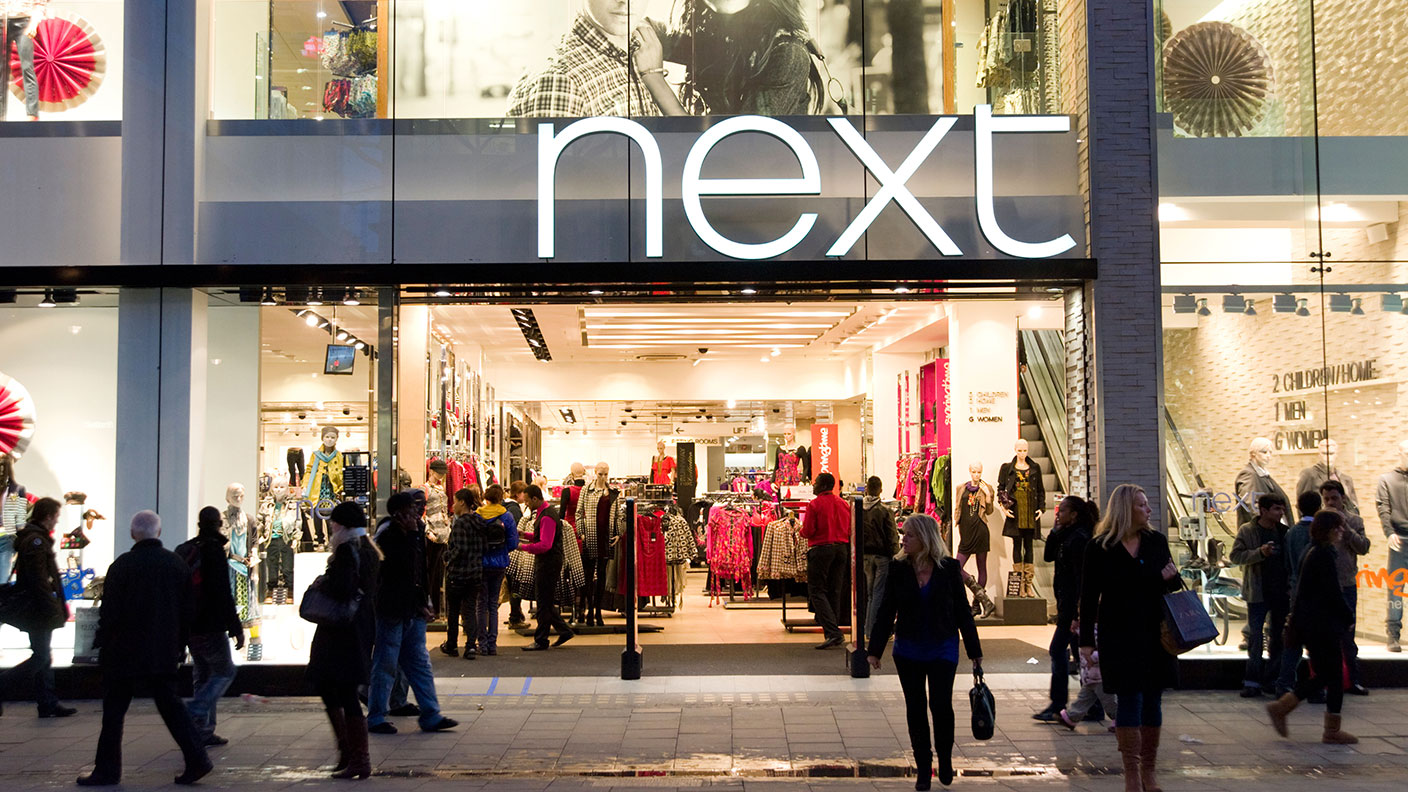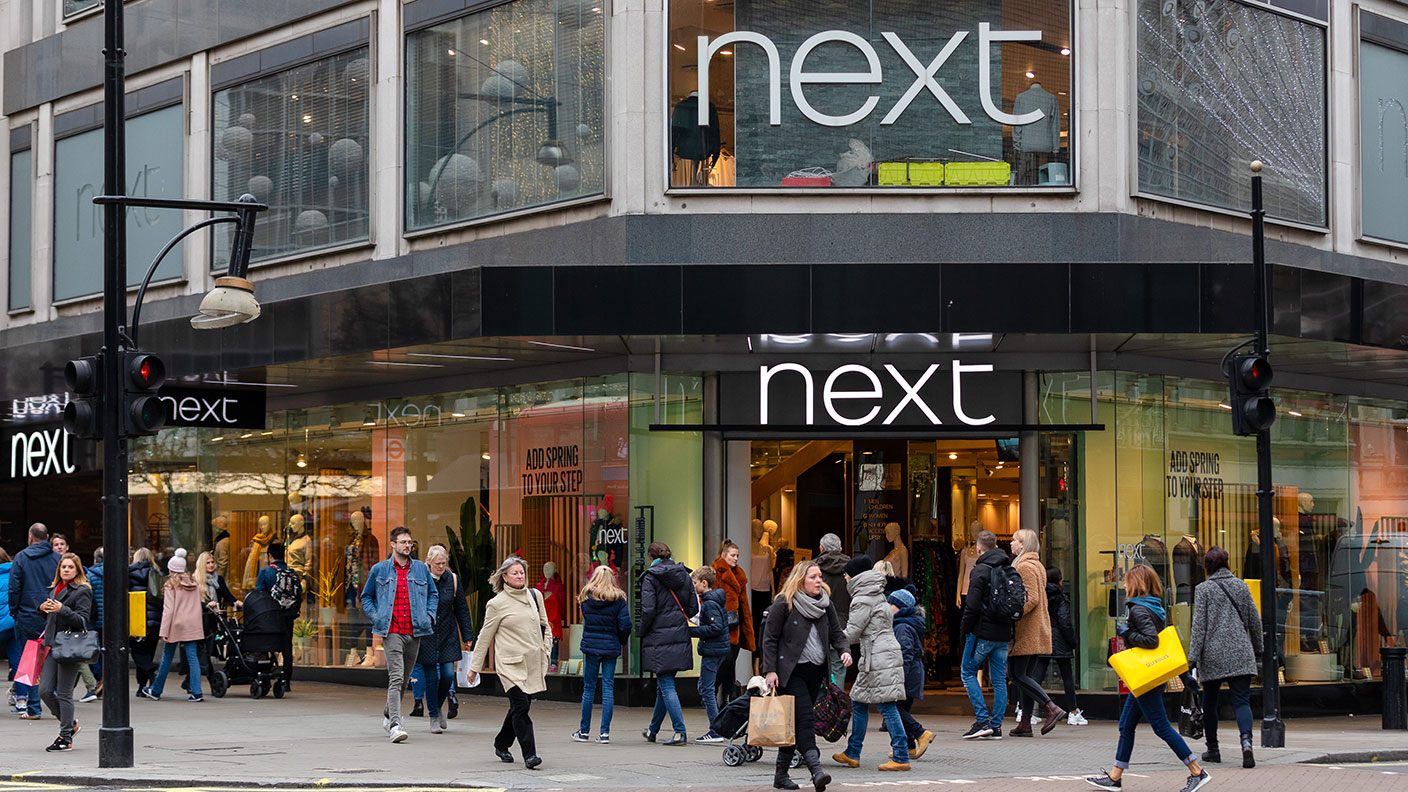Sainsbury’s boss is getting out at the right time – so should you
Supermarket chain Sainsbury's faces a lot of problems. Indeed, the future looks grim for the sector as a whole. Ed Bowsher explains why, and where to put your money instead.

Get the latest financial news, insights and expert analysis from our award-winning MoneyWeek team, to help you understand what really matters when it comes to your finances.
You are now subscribed
Your newsletter sign-up was successful
Want to add more newsletters?

Twice daily
MoneyWeek
Get the latest financial news, insights and expert analysis from our award-winning MoneyWeek team, to help you understand what really matters when it comes to your finances.

Four times a week
Look After My Bills
Sign up to our free money-saving newsletter, filled with the latest news and expert advice to help you find the best tips and deals for managing your bills. Start saving today!

Sainsbury's boss Justin King is stepping down.
He's going out on a high: the supermarket group is unquestionably in a far better state than when King took over ten years ago, and the papers have been full of praise for the man who turned it around.
But let's not forget another supermarket boss who went out on a high Tesco's Sir Terry Leahy. When he stepped down in 2011, he went out as a titan of British business.
MoneyWeek
Subscribe to MoneyWeek today and get your first six magazine issues absolutely FREE

Sign up to Money Morning
Don't miss the latest investment and personal finances news, market analysis, plus money-saving tips with our free twice-daily newsletter
Don't miss the latest investment and personal finances news, market analysis, plus money-saving tips with our free twice-daily newsletter
Three years on, his legacy looks somewhat tarnished. Burning more than a billion quid on trying to break into the US was a massive mistake; under-investing in the company's core UK stores was arguably an even bigger one.
When Sir Terry left in March 2011, Tesco shares traded at over 400p - now they're at 320p. That's a loss of 10%, if you include dividend payments. That's pretty rancid given that the FTSE 100 is up 22% (with dividends) since then.
Sainsbury's has done a little better up 5.6% with dividends. But, like Sir Terry, I think King is getting out at the right time the future for the big supermarkets looks grim. Here's why
Justin King has done a lot to turn around Sainsbury's
One big achievement was to get the basics right. When King took over, Sainsbury's was having huge logistics problems. I remember occasions when I couldn't find staples such as a can of peas in a large Sainsbury's store.
These issues were quickly sorted and King worked to ensure that Sainsbury's provided the food that its middle-class customers wanted. That led to 36 quarters in a row of like-for-like sales growth an impressive achievement.
King also drove the expansion of the Sainsbury's Local convenience store chain. It remains a lot smaller than rival Tesco Express, but it's been a great success even so. The key point is that King was smart enough to spot that this was a genuine growth opportunity for supermarkets, unlike his counterparts at Asda or Morrisons.
King unlike Leahy - also avoided attempts to empire build overseas, and most importantly, the chain's market share has grown. At the end of 2013, Sainsbury's overtook Asda to become the UK's second-largest supermarket once again, with its highest market share since 2003.
And yet, in spite of these achievements, I'm lukewarm about King at best.
But Sainsbury's faces much bigger long-term problems
I can see why King hasn't wanted to hike margins too much. He's wanted to counter the perception that Sainsbury's offers poor value compared to the other big supermarkets. But these low margins mean that the big jump in sales under his reign hasn't converted into a similar leap in profits.
As Andrea Felsted pointed out in the FT, last year pre-tax profits came in at £756m, not much higher than the £670m when King took over. In the end, shareholders invest for profit, and Sainsbury's isn't generating enough.
What's more, recent sales performance at Sainsbury's has only been so-so. Like-for-like sales grew by 0.2% in the 14 weeks to January, which isn't the kind of send-off you'd expect from someone who has been an unqualified success.
The core problem is that all of the big four' supermarkets (Tesco, Sainsbury's, Asda and Morrisons) are very vulnerable to competition from Lidl and Aldi at the bottom of the market, and from Waitrose at the top.
Online retail is also causing huge disruption. Sainsbury's has built a decent market share in online, but we don't know how much profit is being made, if any. As the shift to online continues, profitability could even fall.
This competition will only intensify. And as it does, it will become clear that while King did a decent job of improving the running of Sainsbury's, he didn't push through the sort of transformation that the big four really need to compete in this rapidly-changing sector.
Smart-alec financial engineering won't save the supermarkets
This is the sort of smart-alec financial engineering that could give a big short-term boost to shareholder value, but could also end in disaster if the supermarkets struggle to pay rising rent bills in the future. Particularly if they've been loaded up with debt in the process (just look at what happened to the pub companies before the last crash).
In any case, as online shopping continues to grow, how much is a big, out-of-town retail box really worth? Perhaps not as much as the property bulls might hope.
To be clear, I suspect King's reputation will be stronger than Sir Terry's by 2016. But then, he doesn't have quite as far to fall. And whatever happens, I have no intention of buying shares in Sainsbury's or any of the other big four. There's too much competition and not enough growth.
The grim reality (for the supermarkets, if not their customers) is that there are too many of them, and there needs to be a massive, probably painful, shake-up of the sector before they might be worth considering as value plays.
For now, there are far more exciting stock market opportunities elsewhere - Japan, small caps, commodities even some of the better emerging markets. Even if you're looking for dividend income, there are better options elsewhere try big pharma, or even big oil.
And if you really want to buy into UK retail, I'd stick with a company like Next (LSE: NXT) it's not cheap, but in terms of business strategy, it's almost impossible to fault.
Our recommended articles for today
Don't be scared of emerging markets
I'm thinking of shorting Apple
Get the latest financial news, insights and expert analysis from our award-winning MoneyWeek team, to help you understand what really matters when it comes to your finances.
Ed has been a private investor since the mid-90s and has worked as a financial journalist since 2000. He's been employed by several investment websites including Citywire, breakingviews and The Motley Fool, where he was UK editor.
Ed mainly invests in technology shares, pharmaceuticals and smaller companies. He's also a big fan of investment trusts.
Away from work, Ed is a keen theatre goer and loves all things Canadian.
Follow Ed on Twitter
-
 ISA fund and trust picks for every type of investor – which could work for you?
ISA fund and trust picks for every type of investor – which could work for you?Whether you’re an ISA investor seeking reliable returns, looking to add a bit more risk to your portfolio or are new to investing, MoneyWeek asked the experts for funds and investment trusts you could consider in 2026
-
 The most popular fund sectors of 2025 as investor outflows continue
The most popular fund sectors of 2025 as investor outflows continueIt was another difficult year for fund inflows but there are signs that investors are returning to the financial markets
-
 Defeat into victory: the key to Next CEO Simon Wolfson's success
Defeat into victory: the key to Next CEO Simon Wolfson's successOpinion Next CEO Simon Wolfson claims he owes his success to a book on military strategy in World War II. What lessons does it hold, and how did he apply them to Next?
-
 How to profit from rising food prices: which stocks should you invest in?
How to profit from rising food prices: which stocks should you invest in?Tips Food prices are rising – we look at the stocks to avoid and the one to invest in this sector.
-
 Next’s results stand out against a tough retail backdrop
Next’s results stand out against a tough retail backdropAnalysis FTSE 100 retailer Next is dealing well with the tough conditions on the high street, with rising profits and a plan that's working. Rupert Hargreaves looks at the numbers.
-
 Why Next is the only retailer I’d want to own in my portfolio
Why Next is the only retailer I’d want to own in my portfolioNews The retail sector is brutally competitive. But high street stalwart Next is exploiting and building on its significant competitive advantages, says Rupert Hargreaves.
-
 Next shares soar as sales smash expectations – is the stock a buy?
Next shares soar as sales smash expectations – is the stock a buy?News High street and online retailer Next has reported a big rise in sales and profits. John Stepek looks at its performance and asks if it's worth buying Next shares.
-
 What the merger between Sainsbury’s and Asda means for you
What the merger between Sainsbury’s and Asda means for youFeatures Sainsbury’s and Asda have decided to merge. John Stepek looks what it means for the troubled UK supermarket sector and asks: is it a good deal?
-
 Little cheer on the high street
Little cheer on the high streetFeatures Profit warnings from Debenhams and Mothercare are more evidence that traditional retailers are fighting a losing battle against nimbler online competitors, says Ben Judge.
-
Britain’s convenience store battle
Features Sainsbury’s has bid £130m to buy Nisa, the mutually owned consortium of more than 1,300 independent retailers, which operates 3,000 small shops.
